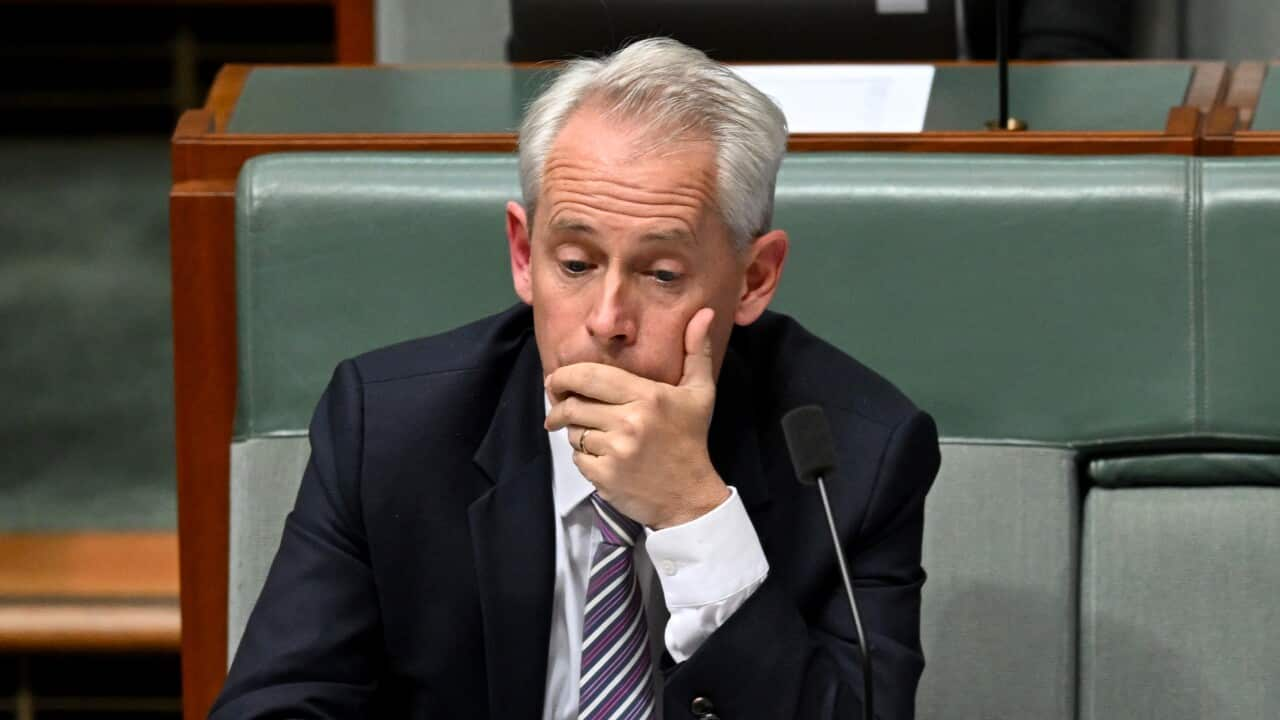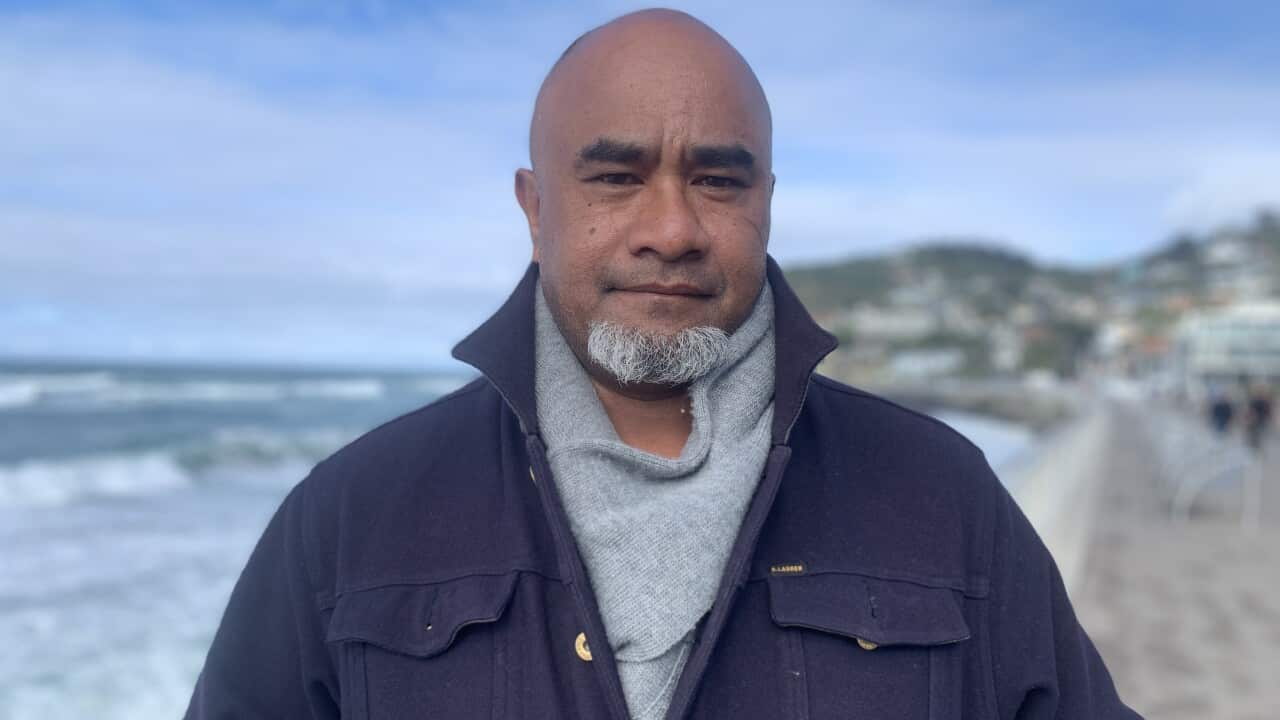Immigration Minister Andrew Giles is under pressure over a controversial ministerial direction that allowed several foreign nationals convicted of serious crimes to escape deportation.
Direction 99 applies to reviews of visa cancellations, but the government says it's being interpreted by the Administrative Appeals Tribunal (AAT) in a way it wasn't intended.
Here's everything you need to know about Direction 99 and how Australia ended up here.
What is Direction 99?
Direction 99 requires decision-makers, including the AAT, to make the "strength, duration and nature" of a person's ties to Australia one of five primary considerations when reviewing visa cancellations.
The ministerial direction was issued by Giles in January last year after over the deportation of Kiwi nationals who had spent most of their lives in Australia.
Under Direction 99, other factors that need to be taken into account include the protection of the Australian community, whether the criminal conduct constituted family violence, the best interests of children, and the expectations of the community.
Home Affairs Secretary Stephanie Foster admitted during a Senate estimates hearing this week that her department breached protocol by failing to inform Giles of cases before the AAT.
What is the criticism of the government?
The Opposition has stepped up calls this week for Giles to resign over Direction 99.
Opposition home affairs spokesperson James Paterson said the government had put Australians at risk, and Giles needed to "bear responsibility" for it.
"We have seen some of the most horrific, violent and sexual offenders released into our community, allowed to stay despite being non-citizens, because the AAT has cited Direction 99, time and time again, as the reason," he told reporters in Canberra on Thursday morning.
"That's the direction that Andrew Giles signed at the prime minister's direction, and the only thing that still needs to happen is for someone to pay a price … for someone to resign or be sacked.
"That should be Andrew Giles, and it should be today."

The Opposition's home affairs spokesperson James Paterson said Andrew Giles needed to "bear responsibility" for visa decisions made while Direction 99 has been in place. Source: AAP / Mick Tsikas
How did we get here?
Last November, — leading the government to release 151 people from indefinite detention.
Soon after came the first of many calls from the Opposition for the immigration minister to resign, or be sacked.
Parliament was recalled before Christmas in an attempt to re-jail the worst offenders and, in some cases, impose electronic monitoring through ankle bracelets.
The government also set up a community protection board, including members of law enforcement, to assess cases.
Earlier this year, the government tried and failed to rush through another batch of bills to pre-empt . The High Court , avoiding the release of more than 100 extra detainees.
In April, an image was released by WA Police documenting a shocking assault on a Perth grandmother Ninette Simons. Just over a week later, across national newspapers, it was revealed .
This week, the AAT ruled that a New Zealand man known by the pseudonym CHYC, who had pleaded guilty to raping his stepdaughter, should have his visa reinstated, citing his connection to Australia.
It was also revealed during a Senate estimates hearing that at least two people convicted of murder, who were released after the NZYQ High Court case, .
What else is being said?
Migration lawyer Hamish Glenister said ministerial directions like Direction 99 were designed to create a "measure of uniformity" in decision-making.
"If you didn't have a direction, all you would have is the very broad discretion conferred on decision-makers by the (Migration) Act, and results in individual cases would become far more arbitrary and random — and really would depend on the idiosyncratic views of whoever is making the decision at the time," he told SBS News.
"So some people might be much more compassionate and much more likely to give a non-citizen their visa back, even if they've committed very serious crimes, whereas others are much less so and may be more willing just to deport and take a zero tolerance-type approach."
Glenister said while the immigration minister had the power to overturn the AAT's decisions, he would need to be "satisfied" that was in the national interest to do so.
What happens now?
Giles is drafting a new ministerial direction to ensure all members of the Administrative Review Tribunal — the new federal administrative review body that's set to replace the AAT — take a "common sense approach" to visa decisions.
"First and foremost, this means ensuring that the protection of the community outweighs other considerations," he said during Question Time on Wednesday.
"This has always been the Albanese government’s highest priority. The revised direction will also strengthen the principles of community safety in the making of decisions."
Giles said he was also urgently reviewing around 30 cases, confirming to Sky News on Thursday morning that he had already cancelled eight people's visas.
With additional reporting by Anna Henderson and Sara Tomevska
If you or someone you know is impacted by sexual, family or domestic violence, call 1800RESPECT on 1800 737 732, text 0458 737 732, or visit . In an emergency, call 000.
, operated by No to Violence, can be contacted on 1300 766 491.












